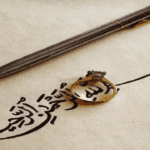In the rich tapestry of Islamic practices, “aaina dekhne ki dua” holds a special place. This unique prayer is a profound way of seeking guidance and blessings from Allah. As we delve into the intricacies of this practice, it becomes evident that it goes beyond a mere ritual—it’s a pathway to self-discovery and spiritual growth.
اَللّٰهُمَّ أَنْتَ حَسَّنْتَ خَلْقِي فَحَسِّنْ خُلُقِي
In English: O Allah Azzawajal as you made my outward appearance good make my character good too.
Contents
- 1 Aaina Dekhne ki dua in hindi:
- 2 Understanding the Concept
- 3 The Power of Reflection in Islam
- 4 Steps to Perform “Aaina Dekhne Ki Dua”
- 5 Incorporating Dua into Daily Life
- 6 Benefits of Regular Reflection
- 7 Addressing Common Misconceptions
- 8 Stories and Anecdotes
- 9 The Contemporary Relevance
- 10 Challenges in Implementing the Dua
- 11 Personal Reflections
- 12 Encouraging Others to Embrace Reflection
- 13 Conclusion
- 14 Frequently Asked Questions (FAQs)
- 14.1 Is “Aaina Dekhne Ki Dua” obligatory in Islam?
- 14.2 How often should one perform this prayer for optimal benefits?
- 14.3 Can children also engage in “Aaina Dekhne Ki Dua”?
- 14.4 What should one do if they find it difficult to focus during the prayer?
- 14.5 Are there variations of this dua across different Islamic traditions?
Aaina Dekhne ki dua in hindi:
हे अल्लाह अज़्ज़ावजल, जैसे आपने मेरा बाहरी रूप अच्छा बनाया, वैसे ही मेरा चरित्र भी अच्छा बनाओ।
Check Out:
Understanding the Concept

“Aaina dekhne ki dua,” translated as the prayer to see oneself in the mirror, has deep roots in Islamic tradition. It symbolizes the act of self-reflection, a practice highly valued in Islam for fostering personal development and connection with the divine. Understanding the cultural and historical context adds layers of meaning to this profound ritual.
The Power of Reflection in Islam
The Quran and Hadiths emphasize the importance of introspection and self-awareness. Verses such as [Quranic reference] highlight the significance of pondering over one’s actions and seeking Allah’s guidance. This sets the stage for understanding the spiritual potency embedded in “aaina dekhne ki dua.”
Steps to Perform “Aaina Dekhne Ki Dua”
Performing the dua involves more than reciting words—it requires sincerity and focus. A step-by-step guide ensures that the supplicant engages with the prayer authentically. Understanding the nuances of each step adds depth to the spiritual experience.
Incorporating Dua into Daily Life
For this prayer to become transformative, it must extend beyond a specific moment. Integrating “aaina dekhne ki dua” into daily routines, whether in the morning or before bedtime, allows individuals to carry the essence of reflection with them throughout the day.
Benefits of Regular Reflection
The benefits of self-reflection are manifold. From enhanced mental well-being to a deeper spiritual connection, the practice of “aaina dekhne ki dua” yields profound results. Exploring these benefits motivates individuals to embrace this powerful form of supplication.
Addressing Common Misconceptions
As with any practice, misconceptions may arise. Clarifying these misunderstandings is crucial to ensure that individuals approach “aaina dekhne ki dua” with a clear understanding of its purpose and impact. Let’s dispel common myths surrounding this spiritual practice.
Stories and Anecdotes
History is replete with stories illustrating the transformative power of reflection. From the lives of revered Islamic figures to everyday anecdotes, these narratives inspire and offer a tangible connection to the significance of “aaina dekhne ki dua.”
The Contemporary Relevance
In our fast-paced, modern lives, the relevance of ancient practices is often questioned. Exploring how “aaina dekhne ki dua” aligns with contemporary challenges and the pursuit of mindfulness establishes its enduring significance.
Challenges in Implementing the Dua
Acknowledging potential challenges in adopting this practice is essential. Whether it’s distractions or a busy lifestyle, understanding and addressing obstacles pave the way for a more meaningful engagement with “aaina dekhne ki dua.”
Personal Reflections
Sharing personal insights on the impact of “aaina dekhne ki dua” adds authenticity to the narrative. The author’s experiences and reflections provide a human touch, making the spiritual journey more relatable to readers.
Encouraging Others to Embrace Reflection
The beauty of Islamic practices lies in community engagement. Offering tips and strategies to encourage friends and family to embrace “aaina dekhne ki dua” fosters a supportive environment for collective spiritual growth.
Conclusion
In conclusion, “aaina dekhne ki dua” emerges not just as a ritualistic practice but as a gateway to self-discovery and spiritual elevation. As we navigate the complexities of life, this prayer stands as a beacon, guiding us to reflect, seek guidance, and strengthen our connection with Allah.
Frequently Asked Questions (FAQs)
Is “Aaina Dekhne Ki Dua” obligatory in Islam?
No, “Aaina Dekhne Ki Dua” is not considered obligatory in Islam. It is a recommended or voluntary prayer that some individuals choose to perform for various reasons, such as seeking Allah’s guidance, protection, or blessings.
How often should one perform this prayer for optimal benefits?
The frequency of performing “Aaina Dekhne Ki Dua” is not explicitly prescribed in Islamic teachings. It is left to the individual’s discretion. Some may choose to recite it daily as part of their routine, while others may do so on specific occasions or when they feel the need for spiritual reflection.
Can children also engage in “Aaina Dekhne Ki Dua”?
Yes, children can engage in “Aaina Dekhne Ki Dua.” Islam encourages individuals of all ages to engage in acts of worship and supplication. Parents may introduce such prayers to their children as a means of instilling spiritual habits and seeking Allah’s guidance from a young age.
What should one do if they find it difficult to focus during the prayer?
If an individual finds it difficult to focus during “Aaina Dekhne Ki Dua” or any other prayer, they can try the following:
- Find a quiet and secluded space.
- Clear the mind of distractions.
- Recite the dua slowly and with contemplation.
- Reflect on the meaning of the words being recited.
- Pray at a time when concentration is optimal, if possible.
Are there variations of this dua across different Islamic traditions?
Yes, variations in the wording of supplications can exist across different Islamic traditions and schools of thought. The core meaning and purpose, however, generally remain consistent. It is advisable to refer to reliable Islamic sources or consult with knowledgeable individuals within one’s specific tradition for guidance on variations in “Aaina Dekhne Ki Dua.”










